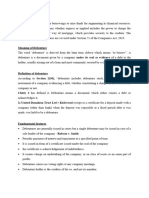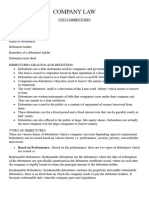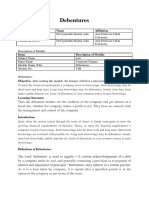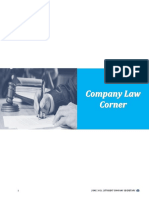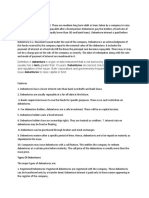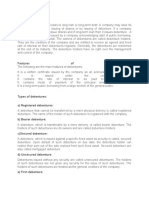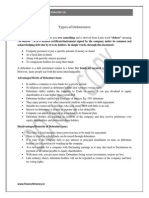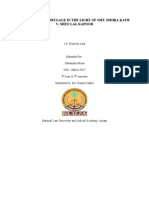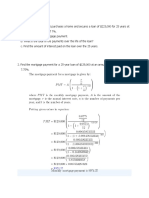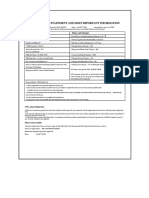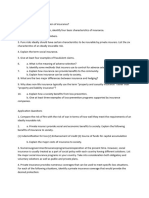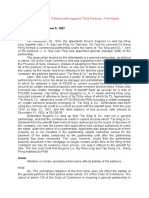0% found this document useful (0 votes)
43 views9 pagesModule-15 & 16
Debentures are long-term debt instruments issued by companies to raise capital, allowing them to borrow without diluting ownership. They can be secured or unsecured, redeemable or irredeemable, and convertible or non-convertible, with specific characteristics and rights for both the issuer and the holders. The Companies Act, 2013 regulates the issuance and management of debentures, including the appointment of debenture trustees to protect the interests of debenture holders.
Uploaded by
Khushi PeriwalCopyright
© © All Rights Reserved
We take content rights seriously. If you suspect this is your content, claim it here.
Available Formats
Download as DOCX, PDF, TXT or read online on Scribd
0% found this document useful (0 votes)
43 views9 pagesModule-15 & 16
Debentures are long-term debt instruments issued by companies to raise capital, allowing them to borrow without diluting ownership. They can be secured or unsecured, redeemable or irredeemable, and convertible or non-convertible, with specific characteristics and rights for both the issuer and the holders. The Companies Act, 2013 regulates the issuance and management of debentures, including the appointment of debenture trustees to protect the interests of debenture holders.
Uploaded by
Khushi PeriwalCopyright
© © All Rights Reserved
We take content rights seriously. If you suspect this is your content, claim it here.
Available Formats
Download as DOCX, PDF, TXT or read online on Scribd
/ 9


